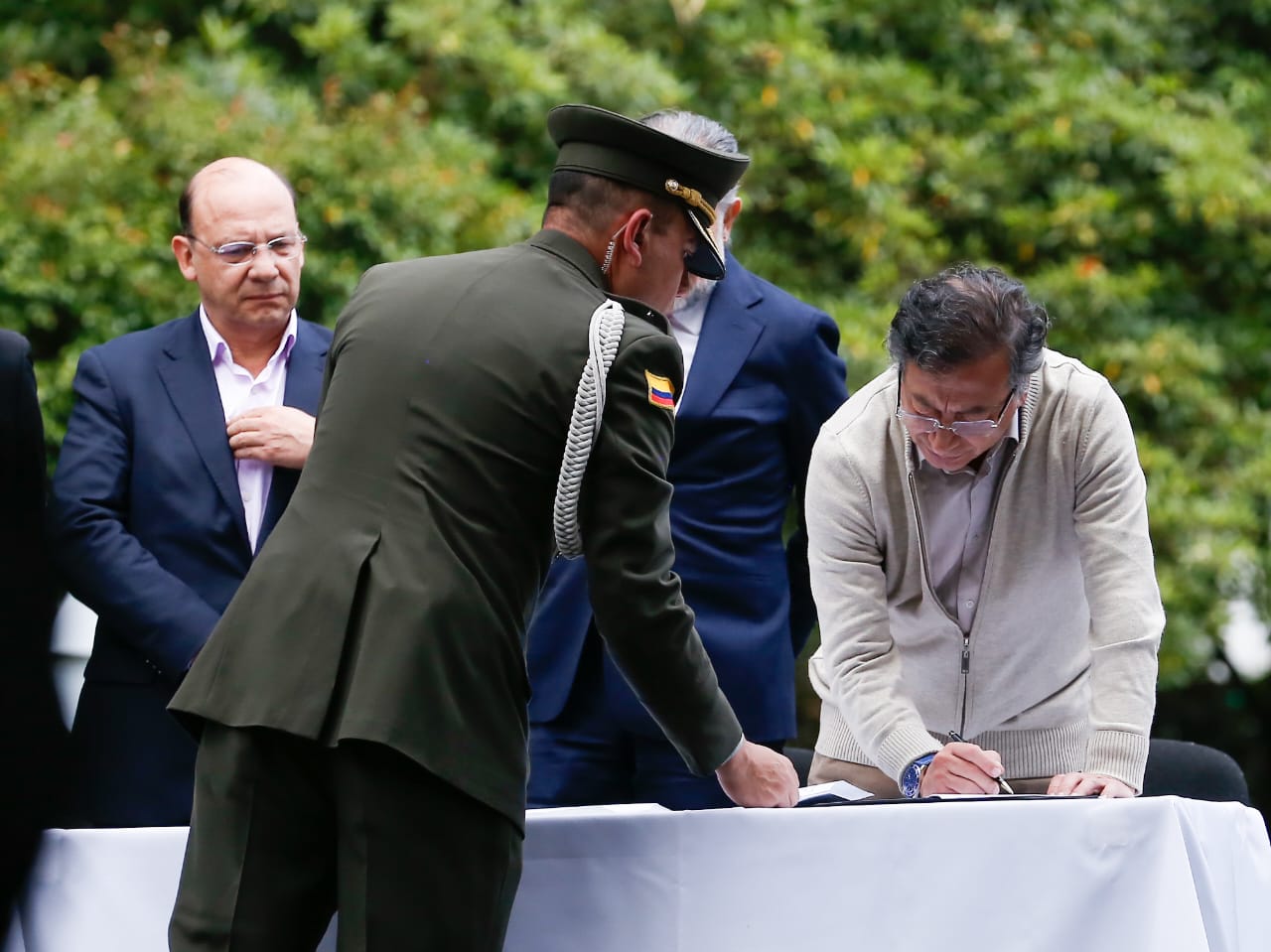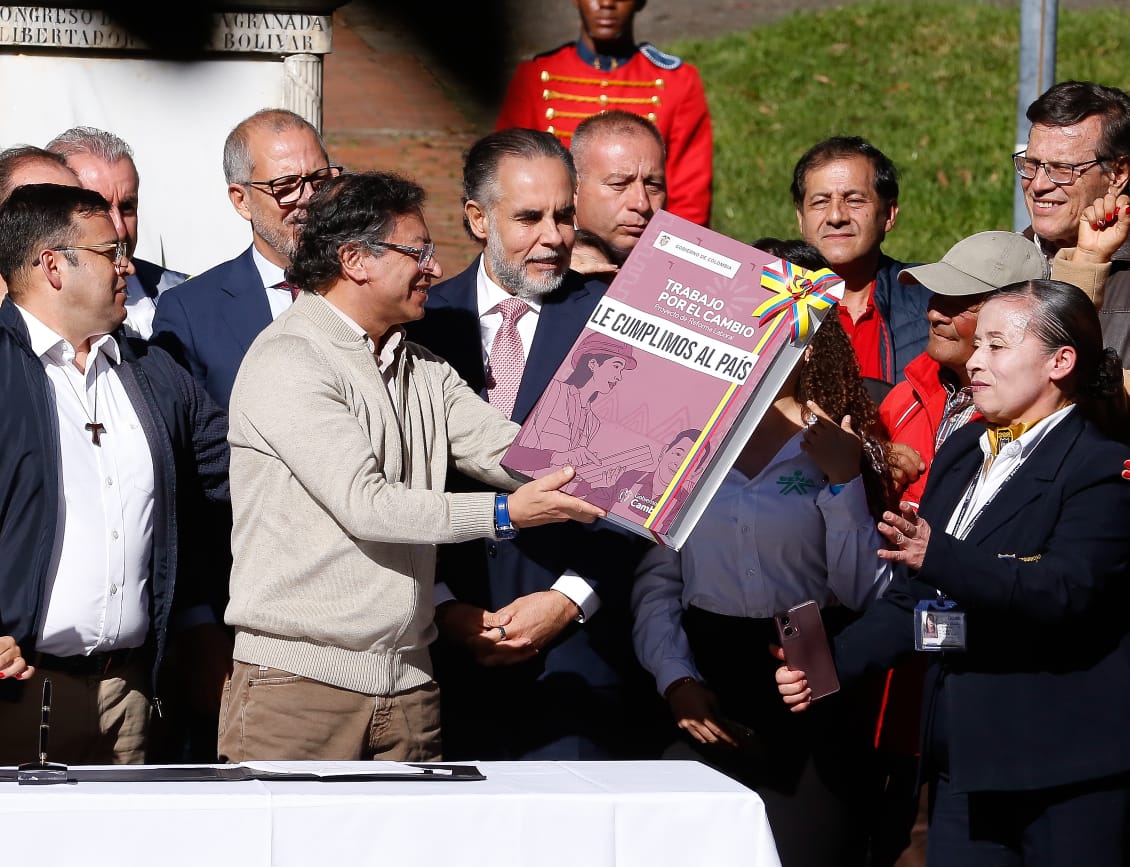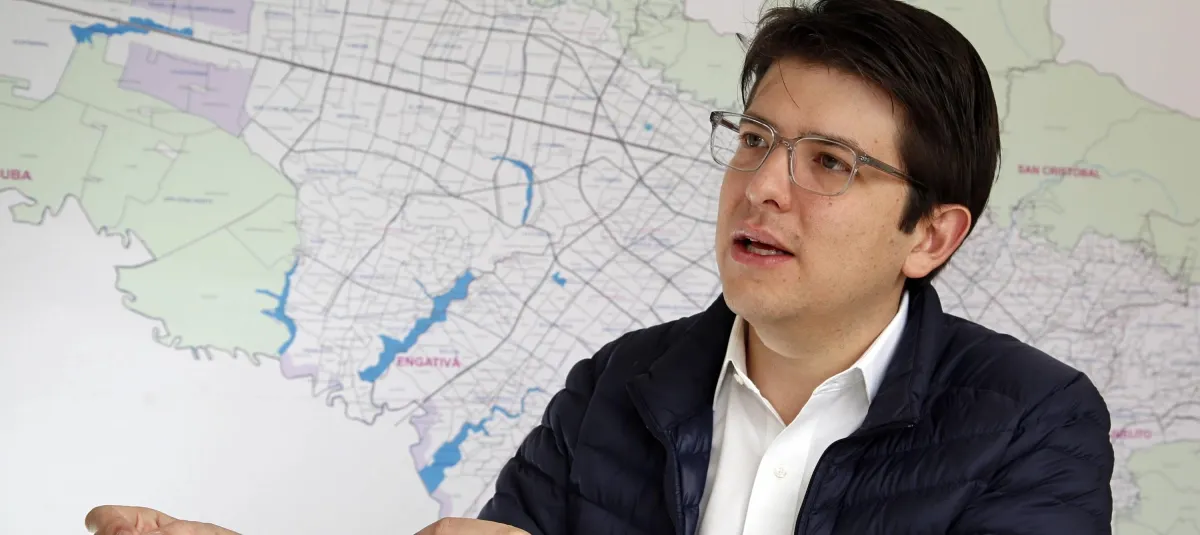The Economist criticizes Gustavo Petro's administration: "Mr. Petro's unstable character exacerbates the problems."

The British magazine ' The Economist' again sent a forceful critique on June 26 of the government of President Gustavo Petro since he took office in 2022.
According to the article titled "Colombia's Terrible President Despairs," the president's term in office has been difficult, with ambitious promises frustrated by various difficulties and disappointments , both in the execution of his plans and in achieving results.
" He was elected in 2022 on promises to overhaul pensions, healthcare, and labor laws , and to dramatically reduce inequality," the report reads, adding: "He also promised to establish 'Total Peace' by negotiating with all armed groups in the conflict-ridden country. However, Mr. Petro's pugilistic governing style has made it difficult to win support in Congress, while the courts have blocked some of his reforms. Exasperated, Mr. Petro is now flirting with the idea of changing the Constitution ."
The reforms that have had problems 
President Gustavo Petro signed the labor reform. Photo: Néstor Gómez. EL TIEMPO
The European magazine also highlights the severity of inequality and the lack of social mobility in the country, arguing that this makes it urgent to implement reforms that are successful and not interrupted.
"Colombia needs reform. It is one of the most unequal countries in the world. It is painfully difficult for a poor child to rise into the middle class. In a 2018 World Bank study, Colombia had the lowest intergenerational income mobility among a group of 75 countries ," The Economist noted.
For the British outlet, the Colombian president's strategy with healthcare reform has been too radical and poorly executed. Instead of gradually improving a relatively well-functioning system, he attempted to completely replace it, which generated resistance in Congress and institutions: "However, Mr. Petro's plans have been flawed. Take healthcare reform. The Colombian system is administered by 27 private insurers. Only seven of them have sufficient financial liquidity to meet the regulators' demands. But instead of adjusting the system, which provides cheaper healthcare than in most Latin American countries, Mr. Petro threatened to dismantle it. Last year, he proposed a bill that would nationalize all private insurers. When Congress shelved this proposal, regulators intervened in the two largest insurers. In March, the House of Representatives passed a watered-down version of the bill. The Senate is likely to reject it."
Likewise, pension reform was not left out; the aforementioned media outlet indicated that this bill is in "limbo": "According to this, workers earning up to 2.3 times the minimum wage —or around $750 a month —would have been required to pay their contributions to the state system. Those earning more would have been able to deposit the balance in a private fund. The bill was supposed to go into effect on July 1. But on June 18, the Constitutional Court returned it to Congress after opposition lawmakers said the government had forced it through Congress without sufficient time for debate ."
And they added: " Fedesarrollo , a think tank in Bogotá, the capital, estimates the reform will raise hiring costs by as much as 15%. Small businesses and security and retail companies that rely heavily on night shifts will be hardest hit. They could lay off employees, pushing even more Colombians into the informal market, where about 60% of workers already labor. "You can't talk about improving conditions for workers if you're also discouraging employers," says Gabriel Jaime Vallejo of the Democratic Center, a right-wing party.
A 'Total Peace that seems battered' 
Signing of labor reform Photo: Néstor Gómez / EL TIEMPO
For The Economist, President Petro's government is facing increasing difficulties in implementing its agenda: "it is running out of fiscal space," and Finance Minister Germán Ávila has had to suspend "a legal limit on spending and borrowing," which "will cause the fiscal deficit to exceed 7% of GDP this year."
At the same time, the "Total Peace" strategy is showing signs of failure, with increasing violence: Miguel Uribe Turbay, a presidential candidate, "was shot in the head in Bogotá" and "armed groups murdered several people in Cali and its surrounding areas." Even those who supported Petro in conflict-affected regions, such as Catatumbo, now express disillusionment and fear at the deteriorating security situation.
The British media outlet also focused on President Petro's behavior on social media, where he attacks his critics with comparisons. Furthermore, his constant rotation of ministers reflects an unstable administration: "All of this would be enough trouble for any administration. But Mr. Petro's unstable character exacerbates the problems. He often rants on X, formerly Twitter, and has compared his critics to slave owners and Nazis. Since coming to power, he has renewed his cabinet four times, nominating more than 50 ministers. In April, his former foreign minister accused him of drug use (Mr. Petro denies the accusations and says he is being slandered)."

Miguel Uribe Turbay, former Secretary of Government of Bogotá and former mayoral candidate. Photo: Milton Díaz
In its article, the British magazine warns that, given the failures and obstacles he has faced, President Petro is considering a very risky measure: convening a constituent assembly to rewrite the Constitution. Although other presidents have made partial reforms to the 1991 Constitution, the head of state's proposal goes much further: "Rewriting the Magna Carta is radical, and its intentions are worryingly vague."
And they conclude: " Critics fear the president is trying to enshrine in the Constitution what he has failed to pass in Congress. Mr. Petro's approval ratings, at around a third, are low, though not unusual by Colombian standards. He is not eligible for reelection and has no clear heir. Instead, he believes the people will save his legacy."
LATEST NEWS EDITORIAL
eltiempo





